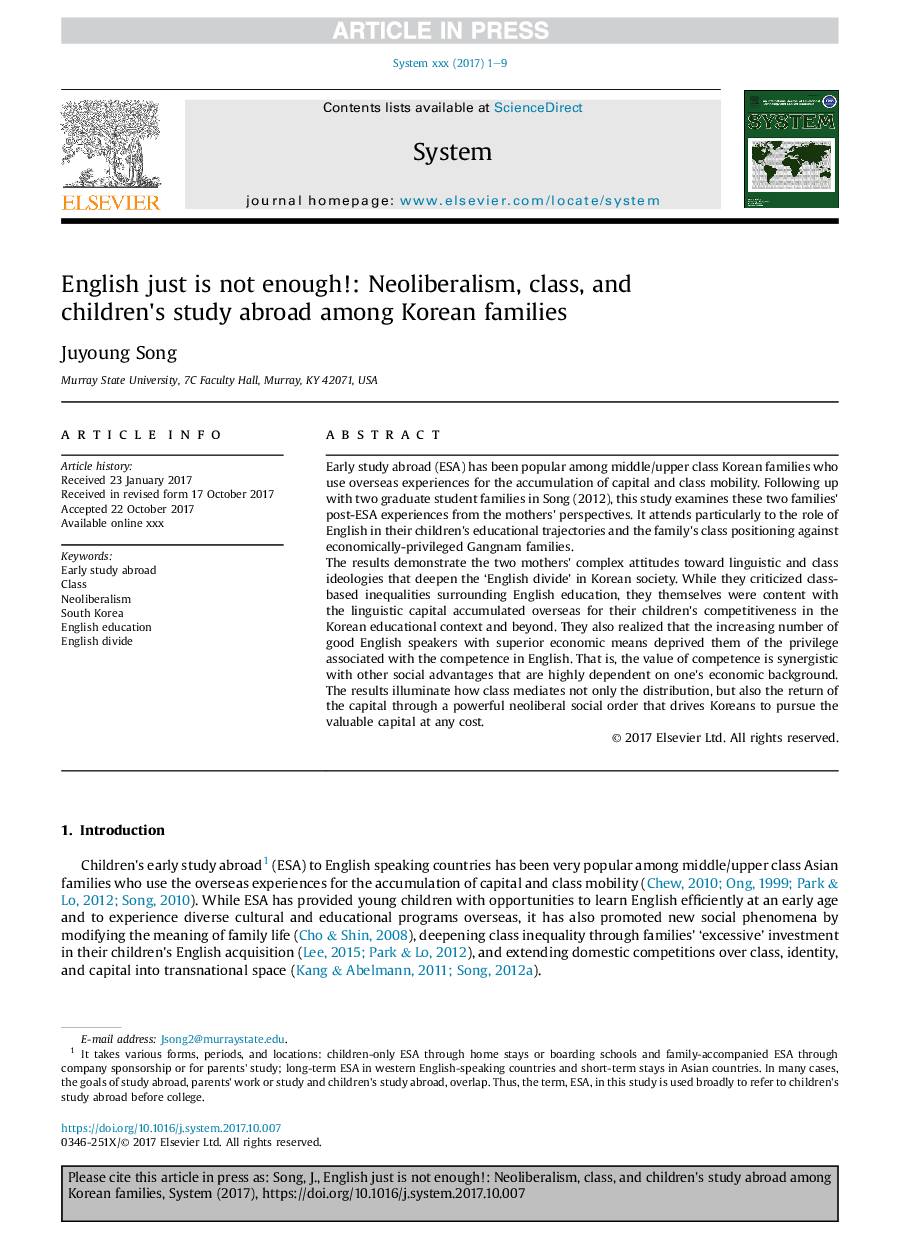| Article ID | Journal | Published Year | Pages | File Type |
|---|---|---|---|---|
| 6849375 | System | 2018 | 9 Pages |
Abstract
The results demonstrate the two mothers' complex attitudes toward linguistic and class ideologies that deepen the 'English divide' in Korean society. While they criticized class-based inequalities surrounding English education, they themselves were content with the linguistic capital accumulated overseas for their children's competitiveness in the Korean educational context and beyond. They also realized that the increasing number of good English speakers with superior economic means deprived them of the privilege associated with the competence in English. That is, the value of competence is synergistic with other social advantages that are highly dependent on one's economic background. The results illuminate how class mediates not only the distribution, but also the return of the capital through a powerful neoliberal social order that drives Koreans to pursue the valuable capital at any cost.
Keywords
Related Topics
Social Sciences and Humanities
Arts and Humanities
Language and Linguistics
Authors
Juyoung Song,
